Nearly 5 months after the first simultaneous heart-liver transplant in Vietnam, Mr. Dinh Van Hoa has returned to life almost like a normal person. He can help his wife and children with tasks that seem to be done by anyone, such as sweeping the house and cleaning.
Last Tet, Mr. Hoa cooked rice and wrapped banh chung. The family was very excited because at the end of September 2024, they had lost all hope when the doctor predicted that Mr. Hoa's life would be measured in hours.
The 42-year-old man is the first case in Vietnam to receive a simultaneous heart and liver transplant. The surgery took place at Viet Duc Friendship Hospital ( Hanoi ) in October 2024, making history in the organ transplant industry, partly because it was a very difficult case, the patient was very sick, marking a strong step forward for the Vietnamese organ transplant industry on a journey of more than 30 years.
Mr. Hoa was admitted to the hospital in a very serious condition, his liver had completely failed and no longer had any function, blood clotting disorder, and every injection bled. His heart was in severe failure, and his heartbeat could barely maintain blood pressure.
At that time, both Mr. Hoa's heart and liver needed machine support; his heart had to use a heart-lung machine and his liver had to use a filter to replace its function.
“Without an alternative solution, after only 6 to 12 hours, the patient would not have been able to be saved,” recalled Dr. Duong Duc Hung, Director of Viet Duc Friendship Hospital.
Therefore, when the last stitch of the simultaneous heart-liver transplant was closed, 8 hours later the patient's heart started beating again, the liver turned pink and started secreting bile, the doctors in the operating room burst into tears.
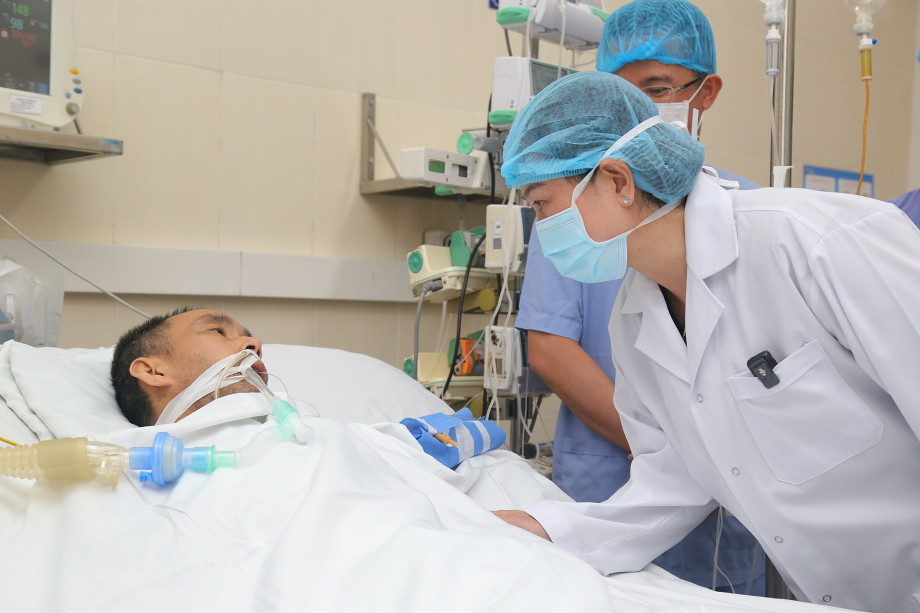
Minister of Health Dao Hong Lan visited Mr. Hoa 8 days after he received a simultaneous heart and liver transplant. Photo: BVCC
Nearly half a year into his new life, Mr. Hoa is still very emotional, only able to say thank you to the Vietnamese doctors and the family of the organ donor.
Nearly 3 decades of realizing the dream of organ transplant
The world began researching organ transplantation in the early 20th century, but it was not until 1954 that a kidney transplant was successfully performed. In 1963, the first liver transplant was performed, and in 1967, the first successful liver transplant.
In Vietnam, the idea of organ transplantation was conceived in the 60s of the last century at the Viet Duc Friendship Hospital. At that time, Vietnamese medicine was still lacking in equipment, facilities, medicine and human resources, but Professor, Academician Ton That Tung, then Director of the Hospital, researched organ transplantation and successfully transplanted it in animals from 1965-1966.
Professor Ton That Tung's wish was to perform liver and kidney transplants for people in the 1970s. But at that time, the whole country had to focus human and material resources on the resistance war, and then there were post-war difficulties, so the wishes, scientific dreams and dreams of saving people of Professor Tung and the doctors had to be put on hold.
However, with strategic vision, Professor Ton That Tung sent surgical teams to study abroad, preparing the workforce for organ transplantation. Organ transplantation at that time was only a dream for the medical community and Vietnamese patients unfortunately suffered from organ failure and needed replacement treatment.
It was not until the late 1980s and 1990s that the transplant program was rebuilt.
June 4, 1992 marked the history of human organ transplantation in Vietnam when the first kidney transplant was performed at Military Hospital 103, Hanoi. The patient was Major Vu Manh Doan, 40 years old (at the time of the surgery), with end-stage renal failure. The kidney donor was his 28-year-old brother.


Meeting to prepare for the first kidney transplant at the Military Medical Academy in 1992 (left) and the first intestinal transplant in Vietnam in 2020. Both cases were supported by foreign experts. Photo: Military Hospital 103, Military Medical Academy
In this first organ transplant, leading professors from Bach Mai Hospital, Viet Duc Hospital, Hanoi Medical University, 108 Military Central Hospital, 103 Military Hospital and Military Medical Academy all participated with support from Taiwanese experts (China).
More than a year later, in July 1993, Vietnamese doctors themselves (without the support of foreign experts) performed a kidney transplant on a 33-year-old patient in Tuy Hoa, the kidney donor was his 42-year-old sister.
Organ transplantation is no longer a dream. The amazing advances in our country's medicine have opened the door to revival for thousands of patients who are desperately fighting for their lives.
No. 1 in Southeast Asia in number of transplants
“Vietnam's organ transplant industry started relatively late compared to the world, but we have made very rapid progress,” said Dr. Duong Duc Hung.
By 2012, Vietnamese doctors had performed organ transplants in more than 600 cases, mainly kidney transplants. In the three years 2010-2012 alone, nearly 300 kidney transplants were performed with good results. By the end of 2023, the number of transplants will be more than 8,300.
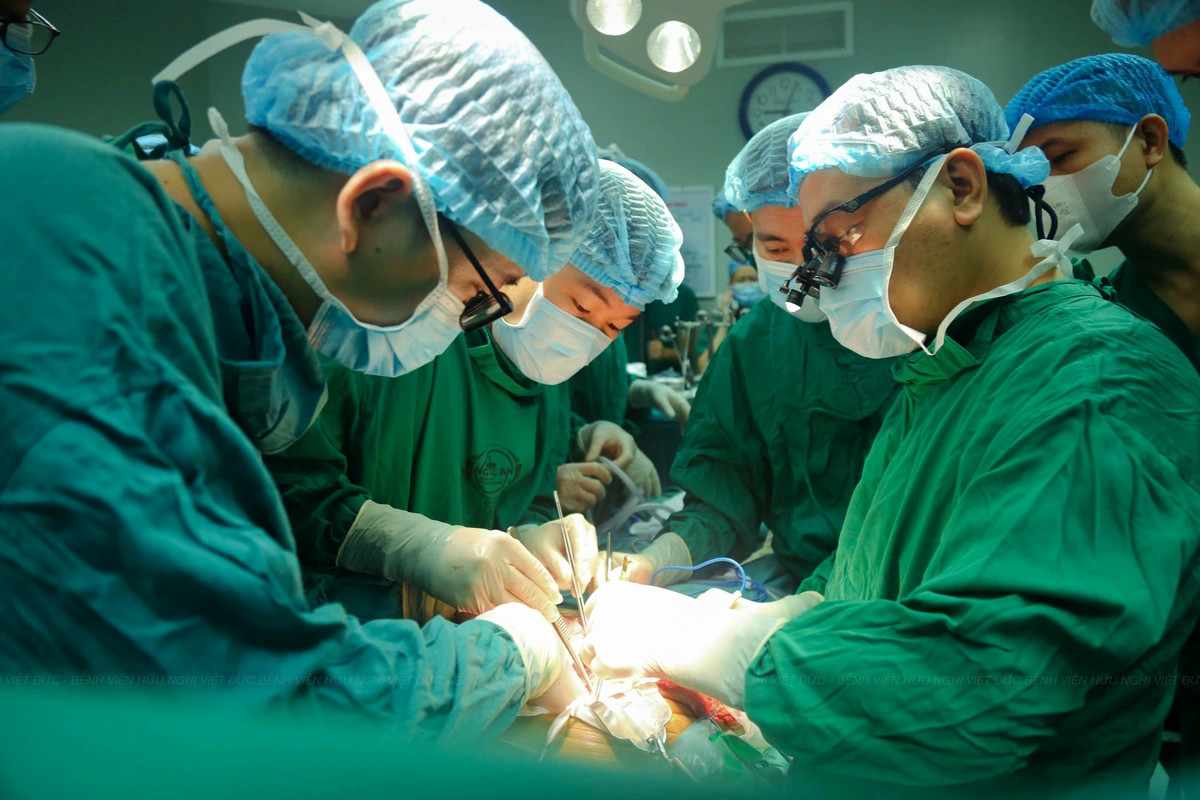
Doctors at Viet Duc Hospital in a simultaneous heart-liver transplant, October 2024. Photo: BVCC
Deputy Minister of Health Tran Van Thuan said that in total, after 33 years, Vietnam has performed more than 9,500 organ transplants. In the past 3 years (from 2022-2024), Vietnam is the number 1 country in Southeast Asia in terms of the number of organ transplants per year (over 1,000 cases). Kidneys are the most transplanted organ in Vietnam (accounting for more than 84% of transplants).
In the early years, the number of facilities performing organ transplants could be counted on the fingers, such as Military Hospital 103, Cho Ray, Viet Duc, Hue Central, Military Central 108, etc. Up to now, the whole country has 27 organ transplant centers. Among them, names such as Military Central Hospital 108 is currently the number 1 liver transplant center in Southeast Asia, Viet Duc Friendship Hospital is the place where many organs and multiple organs are successfully transplanted at the same time...
Not only has the number of organ transplant centers in central hospitals increased rapidly, dozens of provincial hospitals have also learned, implemented, and added their names to the organ transplant map of Vietnam.
Dr. Ha Anh Duc, Director of the Department of Medical Examination and Treatment Management (Ministry of Health), said that every week, the unit receives applications for organ transplants from provinces in the plains or remote mountainous areas.
Professor Pham Gia Khanh, President of the Vietnam Organ Transplantation Association, said that organ transplants in Vietnam were more than 40 years behind the world, but are now 20 years ahead of the domestic transplant conditions. This has brought life opportunities to tens of thousands of patients and affirmed the position of the Vietnamese medical sector.
Confident in ownership, proud to share
Dr. Duong Duc Hung shared that in the early years of organ transplants, Vietnamese doctors were sent abroad to learn organ harvesting and transplant techniques, and to bring the organization back to apply in Vietnam.
But now, not only do Vietnamese doctors independently perform kidney, heart, liver transplants, etc., they also make technical changes to adapt. Dr. Hung said that at major international conferences held in France, when Vietnamese doctors reported on organ transplants being performed, foreign colleagues were very surprised. They made appointments to come and visit.
“They said, ' We learn from you .' This shows that we can exchange and discuss equally with foreign colleagues, and not always play the role of students anymore,” Dr. Hung said, adding that this is something to be proud of.
Since the first kidney transplant in 1992, which was jokingly called “wearing tire sandals on a spaceship” by experts like Professor Pham Gia Khanh (a phrase coined by Lieutenant General Pham Tuan), Vietnam’s major organ transplant centers have continuously set memorable records and milestones.
In 2020, during 16 days in mid-September, doctors from the Cardiovascular and Thoracic Center and colleagues from Viet Duc Friendship Hospital successfully performed 4 heart transplants, including 2 transplants in two consecutive days.
This was an unprecedented record at the time. The two transplants were performed only a few hours apart, each lasting more than 10 hours. The team had just finished the previous one, only had time to rest and eat on the spot before starting the next one.
The joy of the doctors at that time was not because of how many transplants were performed, but because heart transplant techniques had become routine, organ transplants could take place at any time of the day. This demonstrated the strength and readiness of the hospital to perform difficult techniques, something that 10-15 years ago was unthinkable.
More than 4 years since that record, up to now, at Viet Duc Hospital and many organ transplant centers, new milestones have been written, such as the case of Mr. Dinh Van Hoa above is an example. Or in early 2025, in just 6 days (from January 6-11, 2025), Viet Duc Friendship Hospital successfully performed organ transplants for 15 patients from 4 brain-dead donors (4 heart transplant patients, 1 simultaneous liver-kidney transplant patient, 3 liver transplant patients, 7 kidney transplant patients).
Of the more than 9,500 organ transplants performed nationwide in 33 years, Viet Duc Friendship Hospital contributed nearly 1/3. Dr. Duong Duc Hung modestly used the word “normal” when talking about organ transplant work here. In fact, doctors at this leading surgical hospital in Vietnam have made reforms, innovations, and updated scientific advances, helping to improve the quality of organ transplants.
For example, previously the average time for a liver transplant from a brain-dead donor was about 12-14 hours, but now, Viet Duc doctors have changed the technique to be more suitable and better by introducing more machines, tools and equipment. Since then, the transplant time has been shortened to 4-5 hours.
With 4-5 hours of anesthesia shortened, the patient's condition after transplantation is much lighter. This helps reduce the rate of liver transplant patients who are extubated directly on the operating table or after transplantation to only 6 hours, without needing as much blood transfusion as before.
Thanks to this, doctors can operate on more severe patients who were previously very reserved. Currently, Dr. Viet Duc has expanded the indications, not only increasing the quantity but also improving the quality of the transplant. Thanks to this, the post-operative and recovery time is shortened, less medication is used, and costs are reduced. "Single benefit, double benefit", Mr. Hung emphasized.
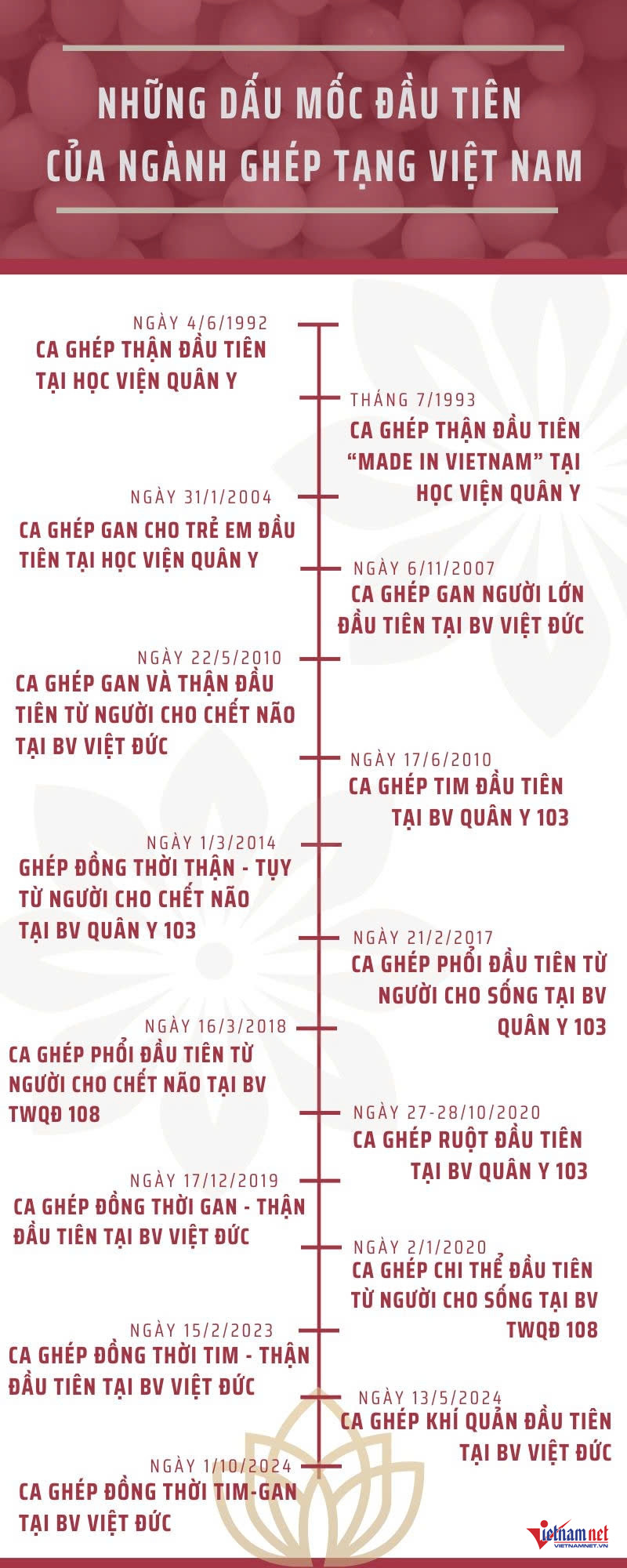
Vietnamnet.vn
Source: https://vietnamnet.vn/ghep-tang-viet-nam-tu-giac-mo-den-dinh-cao-2375382.html


![[Photo] General Secretary To Lam attends the ceremony to celebrate the 80th anniversary of the post and telecommunications sector and the 66th anniversary of the science and technology sector.](https://vphoto.vietnam.vn/thumb/1200x675/vietnam/resource/IMAGE/2025/9/29/8e86b39b8fe44121a2b14a031f4cef46)
![[Photo] General Secretary To Lam receives US Ambassador to Vietnam Marc Knapper](https://vphoto.vietnam.vn/thumb/1200x675/vietnam/resource/IMAGE/2025/9/29/c8fd0761aa184da7814aee57d87c49b3)


![[Photo] General Secretary To Lam, Secretary of the Central Military Commission attends the 12th Party Congress of the Army](https://vphoto.vietnam.vn/thumb/1200x675/vietnam/resource/IMAGE/2025/9/30/9b63aaa37ddb472ead84e3870a8ae825)
![[Photo] Solemn opening of the 12th Military Party Congress for the 2025-2030 term](https://vphoto.vietnam.vn/thumb/1200x675/vietnam/resource/IMAGE/2025/9/30/2cd383b3130d41a1a4b5ace0d5eb989d)




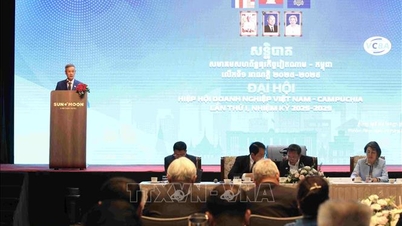

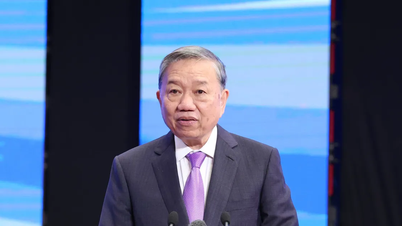

![[Photo] National Assembly Chairman Tran Thanh Man chairs the 8th Conference of full-time National Assembly deputies](https://vphoto.vietnam.vn/thumb/402x226/vietnam/resource/IMAGE/2025/9/29/2c21459bc38d44ffaacd679ab9a0477c)




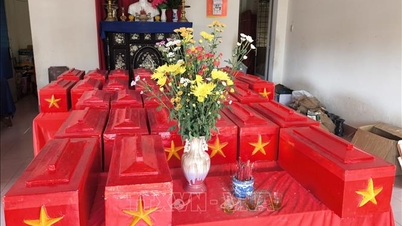

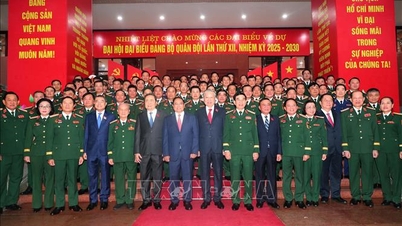







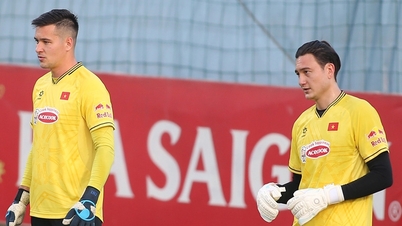
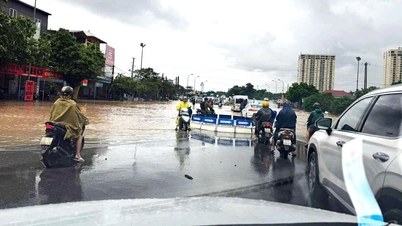

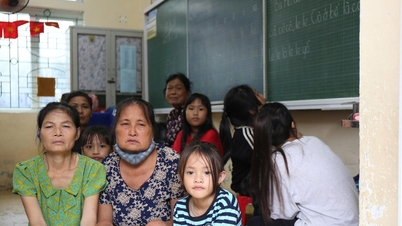

![[Photo] Many streets in Hanoi were flooded due to the effects of storm Bualoi](https://vphoto.vietnam.vn/thumb/1200x675/vietnam/resource/IMAGE/2025/9/29/18b658aa0fa2495c927ade4bbe0096df)




































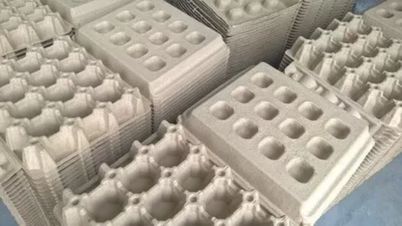


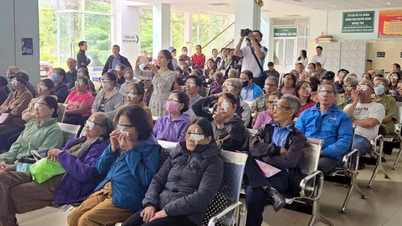

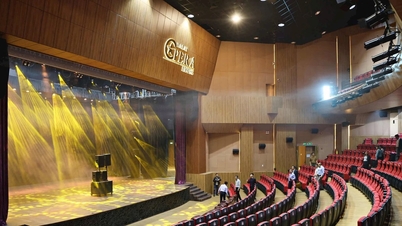


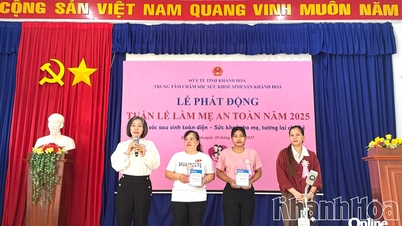














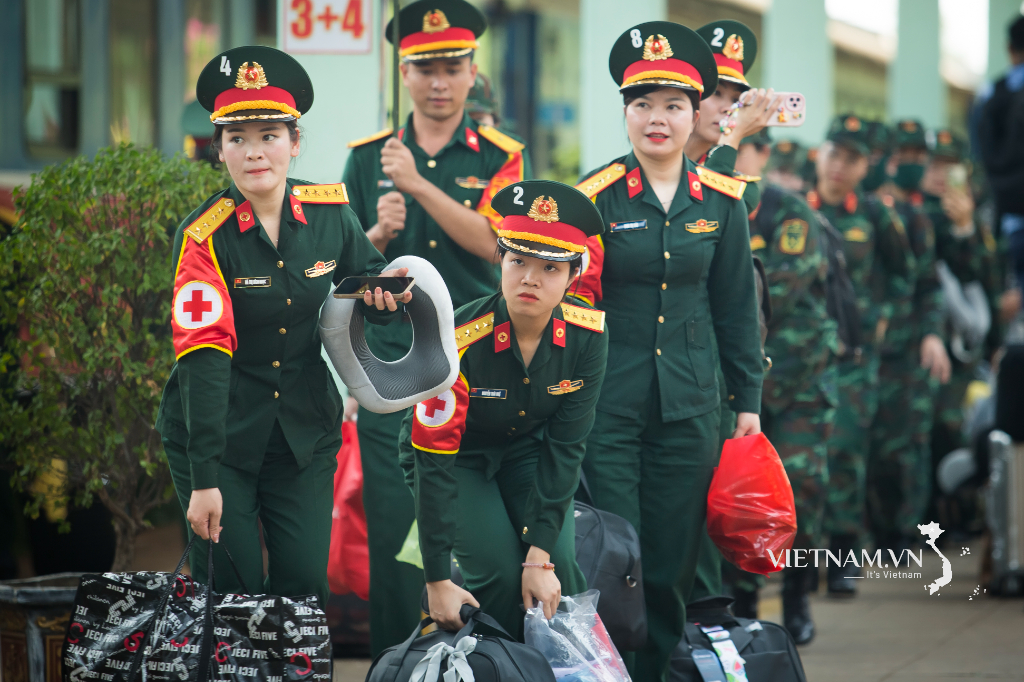

Comment (0)